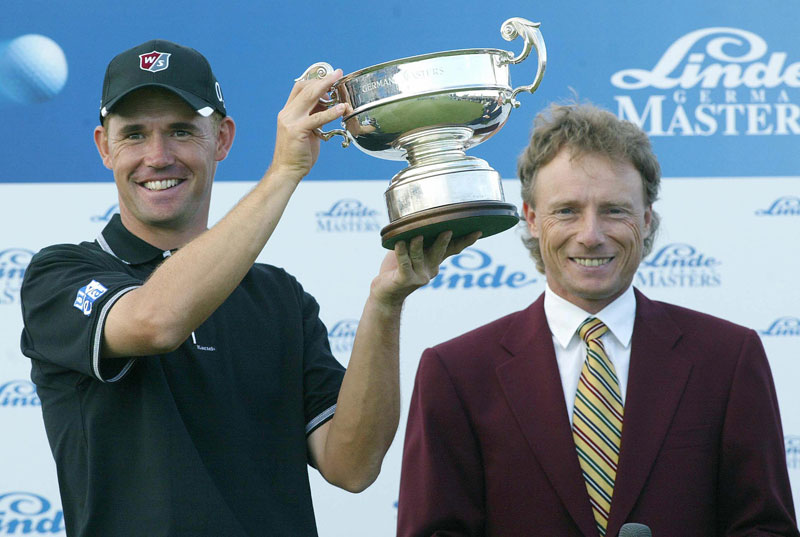The subject of slow play has been an issued these past few days with a number of US-based journalists querying players on their views following controversy during last week’s Valspar Championship.
After the Robert Garrigus-Kevin Na pairing was put on the clock last week at Innisbrook, McDowell cautioned Wednesday that the core issue can be misconstrued.
“Sometimes, slow play can be confused with bad play,” said McDowell.
Then the former US Open winner indicated, however, that many suggested solutions can appear better in theory than they prove to be in practice.

Padraig Harrington wins 2004 German Masters and with Graeme McDowell arguing he may have been incorrectly given a ‘bad time’.
“We are trying to fix this problem, this kind of illness that the game has. It’s hard to do,” he said.
“Every now and again a guy is going to get singled out unfairly. But unfortunately, we have to look at the problem holistically as opposed to looking at each individual player.
“Of course we know who the slow players are, we know who the fast players are. It’s a tough problem to execute and penalize – it’s tough to single out guys.”
However delved back into his career to cite an incident on the European Tour and during the final day of the 2004 German Masters at Gut Larcenhof in Cologne when he was fighting for victory competing alongside Padraig Harrington.
“I had a couple of bad experiences ‘on the clock’ and maybe getting a bad time,” he said.
“I remember getting a bad time during the final round of the German Masters, and I remember I was paired with (Padraig) Harrington.
“It was a very similar scenario to Robert Garrigus last week at Tampa Bay.
“I am not saying I am a faster player than Garrigus but we were put on the clock, and it was a very windy day and I remember having to back off a shot at the par three, 11th hole at the Linde German Masters at Gut Larcenhof.
“I was leading going into the last round and a Tour official gave me a bad time and I got frustrated and upset by it and thinking I was not to blame.
“Harrington put on a usual front nine holes where he missed every green and got it up-and-down from everywhere and I got a little upset and frustrated by all this and consequently lost the tournament to Harrington.
“It was one of those little moments in my career when I could have got mad or I could do something about it to make sure that I would not be given a bad time again.
“Like I said the inevitability of being put on a clock means that it just takes a threesome to play a little bad golf the first five or six holes and you find yourself a hole behind, and the next thing the referee is all over you.
“So, you have to feel comfortable in that environment and you have to clean your act up.”



